MercoPress. South Atlantic News Agency
Tag: Guillermo Moreno
-
Monday, November 4th 2013 - 05:54 UTC
Cristina Fernandez wants Argentine tourists to remain and visit Argentina

The administration of President Cristina Fernandez is preparing a package of measures in an attempt to further impede the outflow of hard currency, mainly US dollars, for which it is planning to establish a double exchange rate system. The measures target tourism, a bill of 8 billion dollars which has become dearer than the energy deficit.
-
Monday, November 4th 2013 - 05:48 UTC
Argentina will continue with its policy of 'containing' imports, says Moreno

Argentina Secretary of Domestic Trade Guillermo Moreno anticipated that the current policy implementing obstacles to contain foreign trade will continue to promote the domestic market and production, and ”because I follow the orders from the President (Cristina Fernandez)”.
-
Wednesday, October 23rd 2013 - 20:51 UTC
Wheat shortage in Argentina has seen bread prices skyrocket; Buenos Aires ton price is double Chicago's
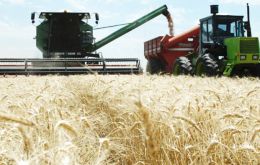
In the last few days the Argentine news media has been focusing on the fact that there does not seem to be enough wheat or corn to go around, which is driving prices higher and causing concern for the users of these grains. This is particularly true for bakeries which have been forced to charge soaring prices for bread.
-
Wednesday, October 23rd 2013 - 01:36 UTC
US dollar in Argentina reached 10 Pesos ahead of Sunday's mid-term election
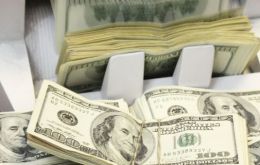
The US dollar in Buenos Aires reached on Tuesday 10 Argentine Pesos (buying price) and 10.05 pesos (selling price) in the informal market, 15 cents higher compared to its last closing price, pushed by the tourist sector, and as the government crackdown on the so called city “exchange caves” eased up.
-
Friday, August 2nd 2013 - 03:09 UTC
Argentine opposition announces the ‘real life’ GDP growth index: 0.5% in the first quarter
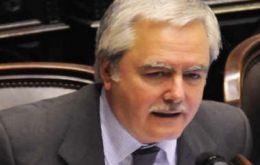
Several Argentine opposition groups have started publishing their own GDP index, (as they do with inflation) based on the average of data processed by private consultants which are exposed to the intimidation of President Cristina Fernandez administration officials.
-
Friday, July 5th 2013 - 03:45 UTC
Argentina prepares to confiscate wheat stocks to ensure bread supply at ‘normal prices’
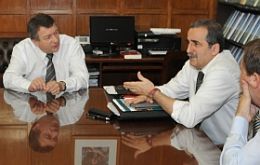
Argentina Domestic Commerce Secretary, Guillermo Moreno has given mills and exporters until Friday to normalize the wheat market which has been under stress with bread prices doubling in the last month, and farmers’ complaining about the worst harvest in decades because of government policies.
-
Tuesday, May 28th 2013 - 06:38 UTC
Lawmakers accuse Cristina Fernandez before a federal court of falsifying stats
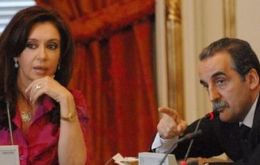
Several Argentine lawmakers from opposition parties accused President Cristina Fernandez and Domestic Trade minister Guillermo Moreno of allegedly ‘falsifying” the figures published by the government’s official stats office Indec.
-
Thursday, May 23rd 2013 - 07:20 UTC
Beware inflation: CFK announces “political groups” will keep track of prices in shops

Argentine President Cristina Fernández (CFK) indirectly acknowledged that inflation has become a major challenge for her government despite the fact that the official reading in twelve months is 10.6%, even when private estimates indicate 24% and expectations have soared to 34%.
-
Wednesday, May 15th 2013 - 07:32 UTC
Argentina April inflation 23.67% in 12 months; partial prices-freeze to continue until October election

Argentina’s inflation in April was 1.52% and 23.67% in the last twelve months according to the so called Congress index which is calculated by private agencies and was released on Tuesday.
-
Tuesday, May 14th 2013 - 06:49 UTC
Whitewashing draft bill and Moreno have US ‘blue’ dollar market in Argentina flat

Trading of the ‘blue’ or parallel dollar in Argentina remained flat on Monday for a second day following last week’s events when the 10 Pesos barrier was broken and the government reacted with a tax amnesty or whitewashing draft bill promising all dollar assets holders a new clean record and no questions asked if they turn their greenbacks into government bonds or promissory notes.
